Scientific research shows a significant linkage between personal well being and environmental knowledge, attitudes and behaviours
Scientific research shows a significant linkage between personal well being and environmental knowledge, attitudes and behaviours

[10 reasons now featured on Positive News, Start UK and Films for Action!]
An increasing foundation of scientific research shows a significant linkage between personal well being and environmental knowledge, attitudes and behaviours. This is not coincidence; it is a profound truth of crucial importance in the quest to create sustainable societies. It proves beyond a doubt that sustainability has nothing to do with sacrifice and everything to do with creating a better world for ourselves and our children. We have nothing to lose and everything to gain.
If you think about it, it is not surprising. Happiness is an evolved trait that optimizes our behaviour for successful living and therefore survival. Therefore we are happy when we eat, sleep well and have sex. No surprise then that behaviours that harm ourselves and the planet are increasingly lowering our well being and vice versa.
By finding ‘sustainability double-dividends’: lifestyle choices which improve both well-being and sustainability we find a popular route into the future ecological age. By identifying key areas where sustainability and well-being meet, easy gains can be made. People will choose to improve their well-being when these opportunities are made available to them.
1. Living a more local life
2. More vibrant healthy communities
3. Human powered transport
4. Connection to the natural world
5. Choice pruning
6. Less materialistic
7. Enjoyable pursuits
8. Personal development
9. Social actualization
10. Transcendence
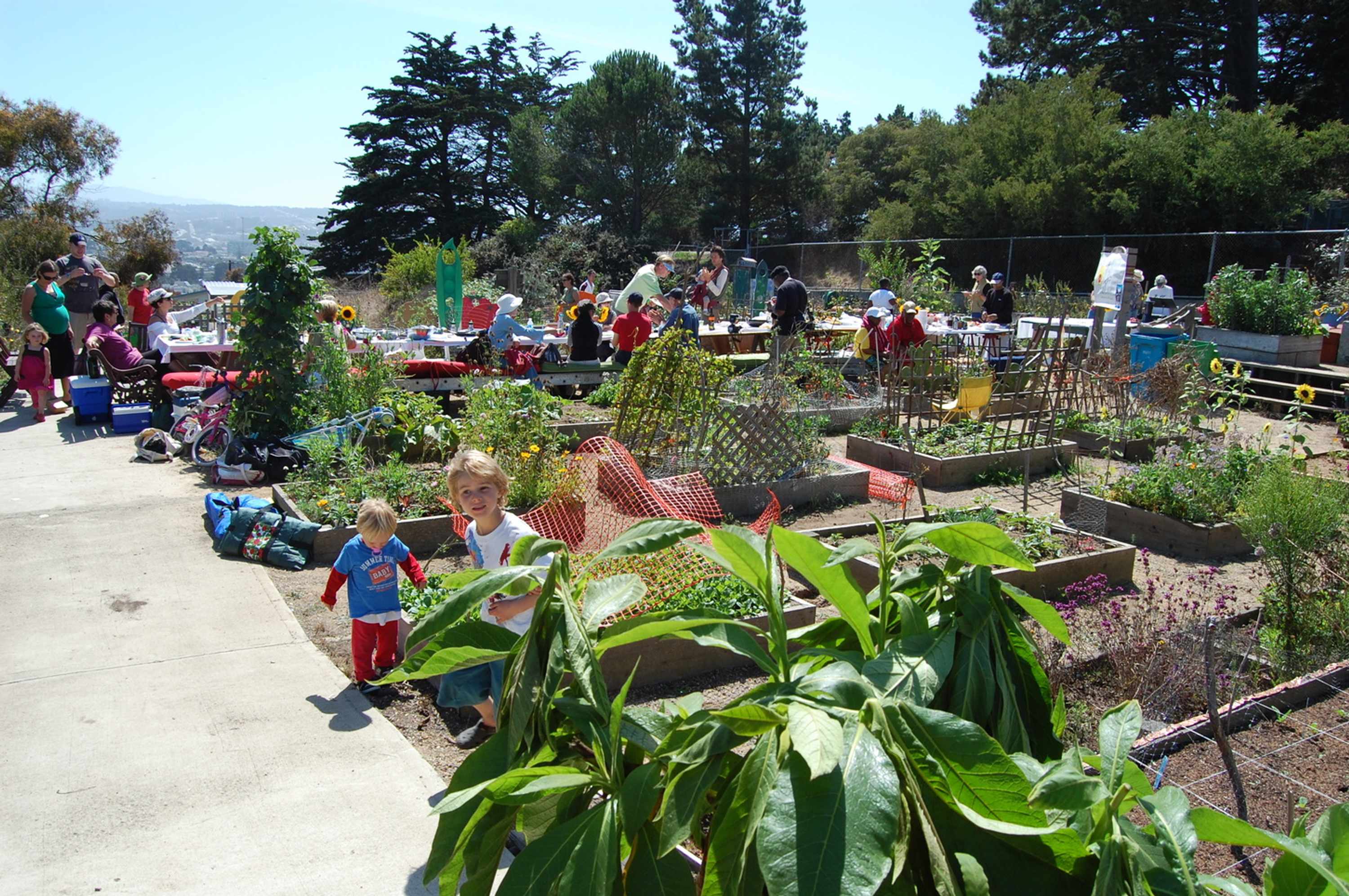
Community gardens, like this one in San Francisco, can help achieve sufficiency. Kevin Krejci/Wikimedia Commons
1. Living a more local life
The foolish man seeks happiness in the distance; the wise grows it under his feet
- James Oppenheim
Modern transportation in general and the car in particular were expected to result in a new era of individual freedom. However, the way our society has restructured around the car has resulted in a range of unforeseen social problems. The car is blamed for pollution, congestion, the demise of local communities and urban sprawl as well as obesity, respiratory problems and traffic accidents.
Personal transport accounts for 16% of the UK’s ecological footprint and domestic transport currently represents around 23% of the UK’s carbon dioxide emissions, excluding those associated with international air travel. BioRegional’s Sustainable Transport Report concludes that whilst the environmental impact of transport may be reduced it cannot become sustainable without a significant reduction the need or desire for people and goods to regularly move long distances. This can only be done through a greater localisation.
Our life triangle consists of the distance between home, work and where we shop. Re-localization benefits the environment by reducing the amount of travel and transport required to sustain our lives. This results in fewer resources used and less pollution. This geometry can be expanded to include schools, hospitals and centres of arts to create thriving local communities.
By spending less time travelling on a day to day basis people have more time for their families and leisure pursuits. Other well being benefits include: a resurgence of active communities, greater closeness of people to the natural environment, improved safety and improved environmental quality of communities.
Local food (coming from your bioregion) alone can make a huge contribution to the well being of our communities. It leads to the rebuilding of local links between communities and the farms that grow their food. This is beneficial to well-being in a number of ways: children grow up with a better understanding of how food is grown, food is fresher, and the local food supply chains can contribute to rebuilding local communities: small shops, butchers, dairies and bakeries can reopen to serve the community.
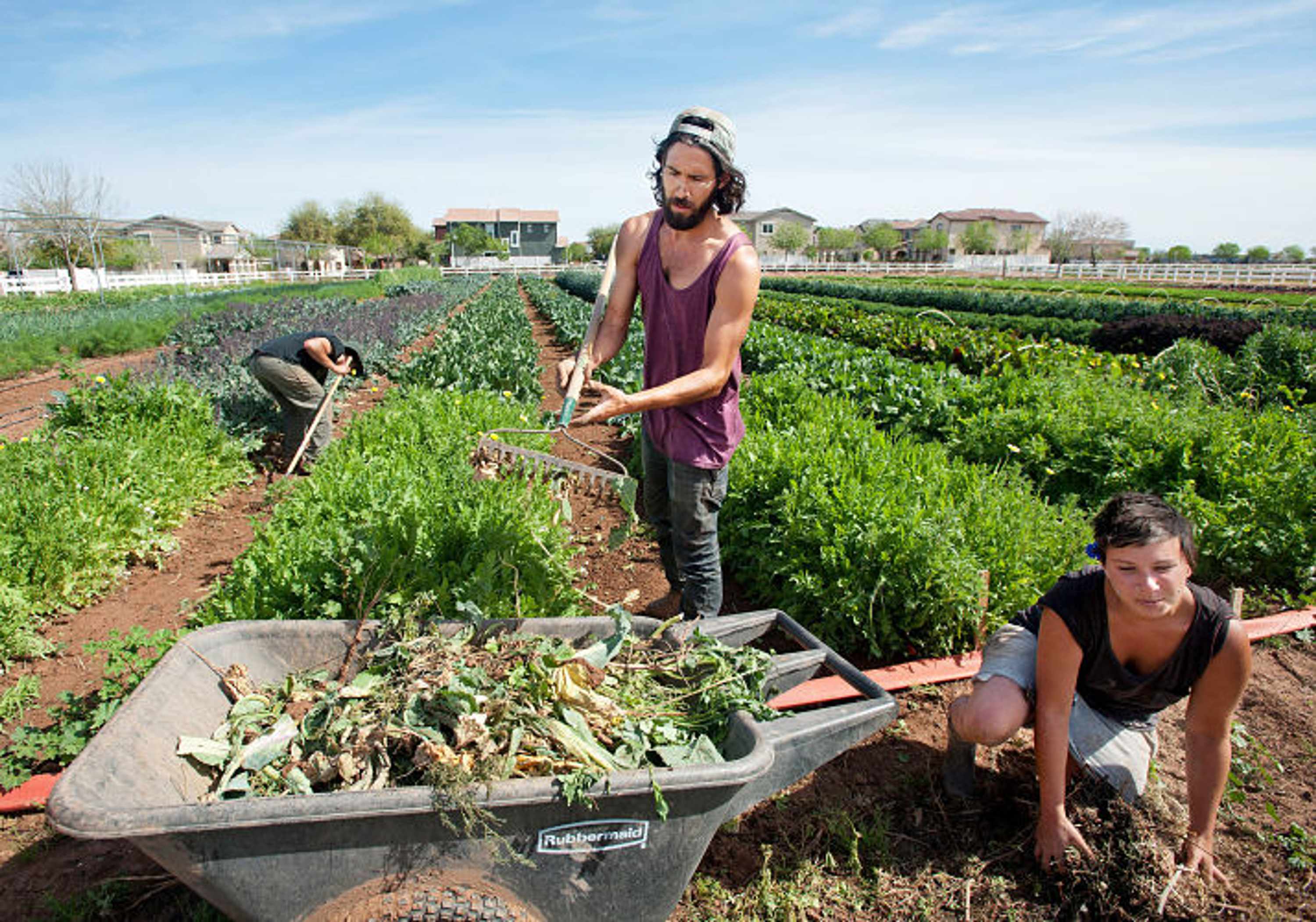
2. More vibrant healthy communities
Happiness is having a large, loving, caring, close-knit family in another city.
- George Burns
Living more locally, for example within walking or cycling distance of your place of work, school and main shopping area increases your regular contact with people in your community. This is fundamental to improving well being because human relationships are consistently found to be the most important correlation with human happiness. A study in the British Medical Journal has even reported that happiness spreads through populations from person to person like a virus.
People’s lives in the UK have become more atomized and communities have broken down. This is a significant part of the reason that well being has declined in the UK since the 1950s. The green relocalization agenda is an effective way of reversing these trends making people’s lives happier. Furthermore, engaging in local initiatives to improve resilience to climate change and sustainability (e.g. growing food, swap shops and sharing, community composting etc) involve neighbours in shared tasks for the common good also boosting well being and community cohesion.
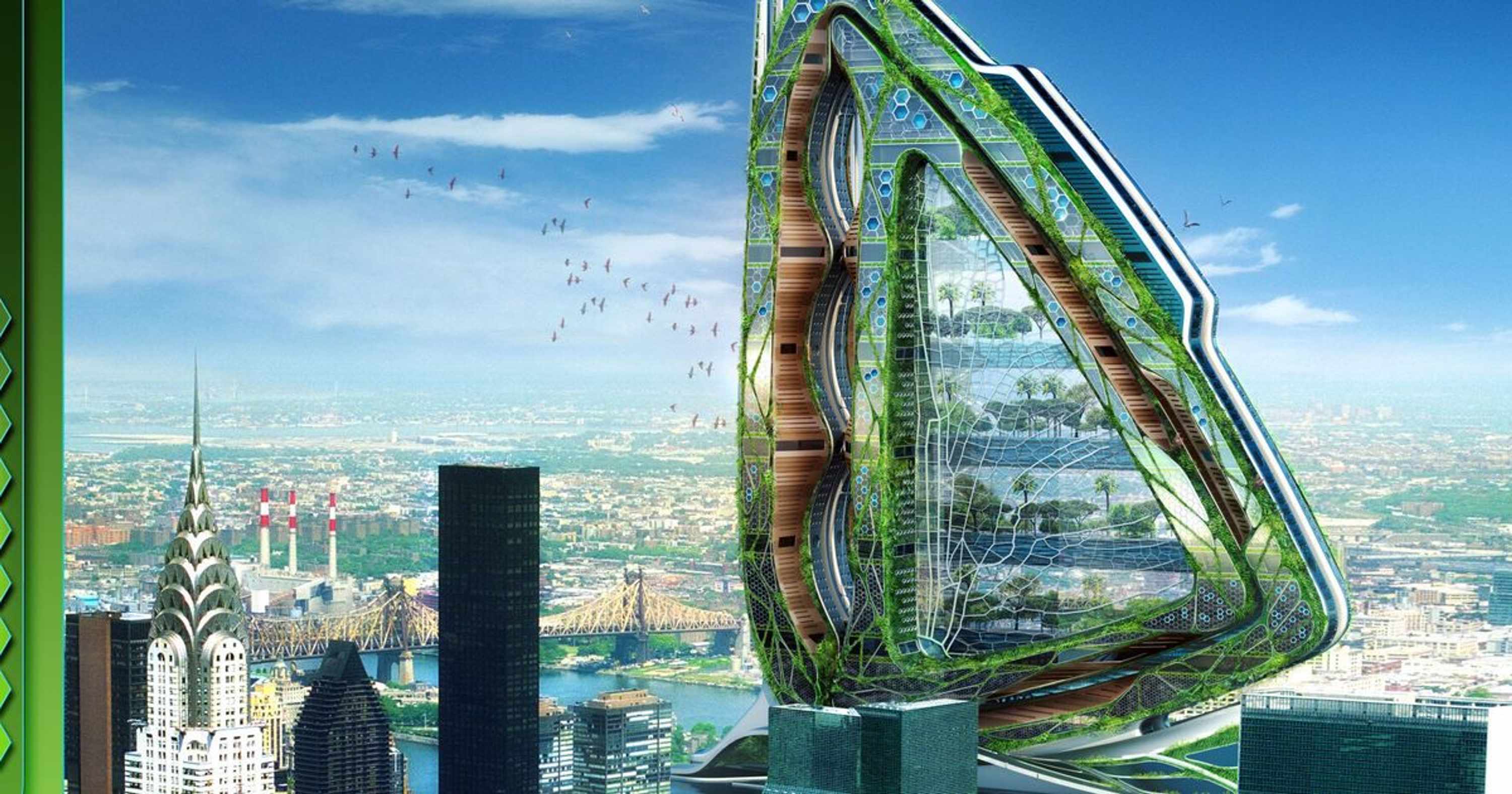
Dragonfly Urban Farm
The bioregionalist perspective maintains that communities should associate (politically and culturally) within their respective ecological regions (including watershed boundaries and soil and terrain characteristics). This approach opposes a homogeneous economy and consumer culture with its lack of stewardship towards the environment. It is proposed that these smaller more active communities with greater autonomy; drawing on local populations, knowledge, and solutions will be empowered to deal locally with issues of environment, health, education, and well-being. This devolution is expected to be a more effective and dynamic form of governance.
3. Human powered transport
Happiness consists in activity. It is running steam, not a stagnant pool. - Oliver Wendell Holmes
The consensus that regular physical exercise is a vital part of maintaining health and wellbeing has existed for at leasta decade. Active / human powered transport– walking, cycling and/or using public transport instead of car travel can have dual health benefits by providing the required physical activity levels and reducing the adverse health effects of motor vehicle transport.
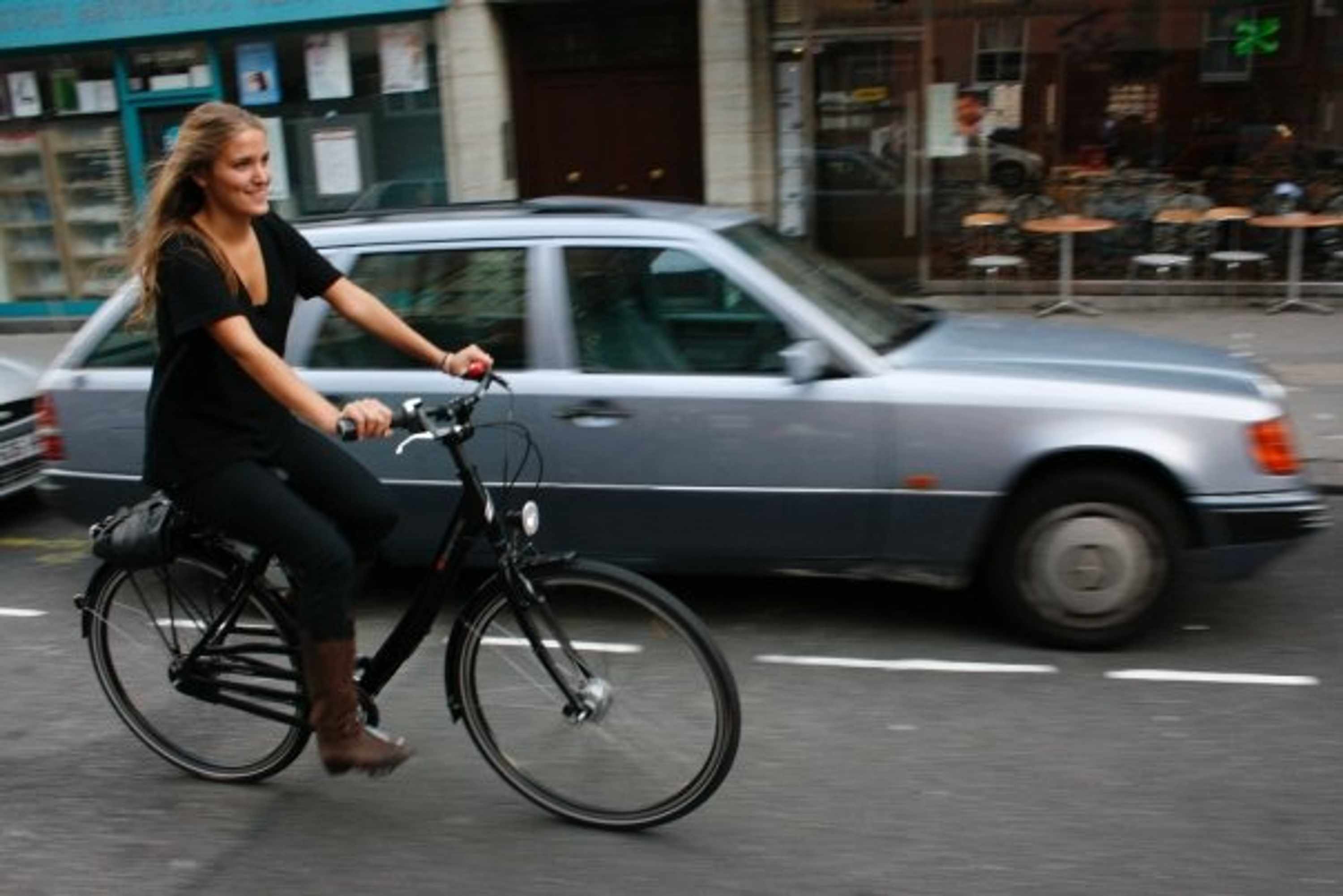
A Happy Cyclist
Active transport is more important now than ever before. Obesity is becoming the UK’s primary health concern. Most adults in England are overweight, and one in five—around 8 million in total—is obese. The prevalence of obesity is increasing worldwide, and, in England, has nearly trebled in the last 20 years. The most likely causes are increasingly sedentary lifestyles combined with changes in eating patterns.
Obese people are more likely to become depressed. This is in stark contrast to studies of active individuals. Psychological well-being- studies have shown that regular cyclists compared with inactive people present improved well-being, higher self-esteem and also greater confidence in their ability to perform active tasks, along with better mental functioning.
At the level of the individual there are widely reported physiological and psychological benefits of exercise. The benefits of human powered transport to society and in particular cities are manifold . Simply the huge increase in available space that arises from removing cars from cities provides enormous scope to re imagine urban spaces as well as the obvious benefits of a decline in pollution and congestion and reduced traffic related casualties. Where there was once 3 lanes of traffic there can now be city farms, sport facilities, skate parks, trees. The lack of space and nature in cities has even been linked to urban violence.
The World Health Organization increasingly emphasises happiness as a component of health and active transport is where health, happiness and functional cities meet. Denmark is consistently identified as one of the happiest nations on earth. Its capital, Copenhagen, is considered the world’s most cycle friendly city.

4. Connection to the natural world
If you want to be happy for an hour, get drunk;
If you want to be happy for three days, get married;
If you want to be happy forever, make a garden. - Chinese Proverb
Edward O Wilson's Biophilia Hypothesis proposes that as a consequence of evolution, humans have an innate tendency to focus on life and life-like processes For many commentators it is the separation of human society from nature that is the root cause of both the environmental crisis and the decline in well-being associated with modern society (e.g. Leopold 1949, Porritt 1984, Capra 2002, Spowers 2002). Modern ways of living as prescribed by Western industrialised culture stand in stark contrast to our evolutionary history, and as such, may precipitate significant adverse outcomes for the human psyche.
Individuals that care about biodiversity loss are believed to reveal a psychological connection with other living organisms and psychologically benefit from this association. Green people have an appreciation of their place within the great natural scheme of things and tend to feel closeness to other organisms and to wild spaces. This can be a source of inspiration and enrichment throughout life. Caring for nature focuses ones attention out of oneself which helps to avoid the angst and self obsession that is a by-product of our individualistic consumer times.
Paradoxically, our desire to be in nature has the potential to be environmentally devastating. For example, reversing the urbanization trends of the modern age would significantly increase the human eco footprint. A solution is to bring more of nature into our habitations. For centuries, gardens and parks have been human’s way of interacting with nature in a managed way. Greening of cities both literally and metaphorically can be done by increasing parks, wildlife gardens, trees, roof gardens, living roofs and urban farms (with the dual benefit of reducing food miles).
It is widely accepted that the human relationship with the natural world must change in order for societies to become sustainable. What is unclear is how to change that relationship. Ecologists tell us that we must leave vast tracks of nature untouched to prevent the 6th mass extinction event getting further out of control and allow eco-systems to recover. We know that human populations are going to keep increasing for at least another 50 years. So we must radically re-imagine our cities. They must become ecologically productive. Literally and metaphorically green places for us to live healthy, happy lives. The first step must be to remove cars. Then we must bring in the farms, trees, aquariums, solar panels, sewage treatment plants and biogas converters. The human beehive needs a serious makeover!
5. Choice pruning
Can anything be so elegant as to have few wants, and to serve them one's self? - Ralph Waldo Emerson
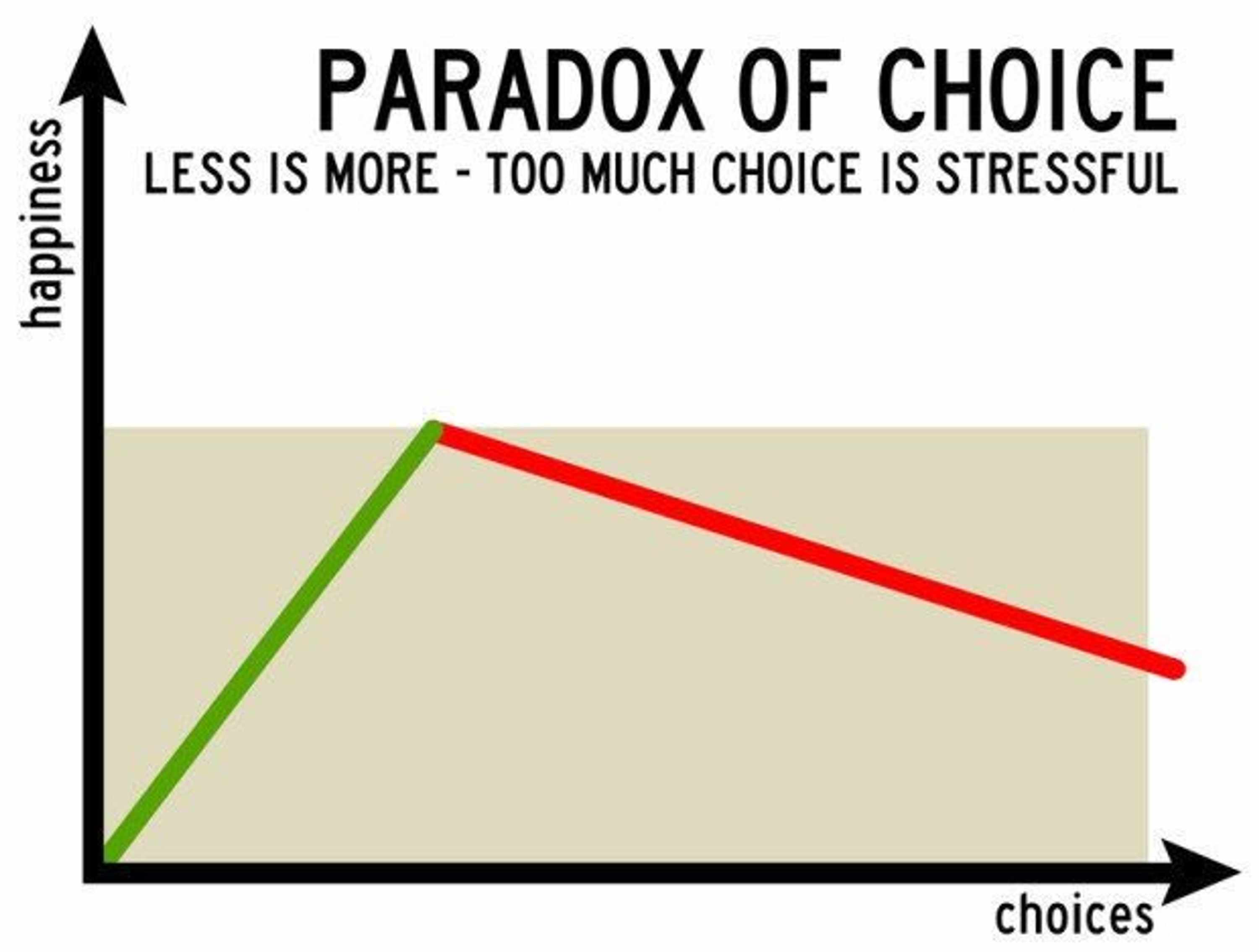
Decisions, Decisions
The expansion of western capitalism has successfully sold us the myth of choice. Increasing choice has been made a proxy for freedom and is supposedly a hallmark of the happy and prosperous. It is presumed that a success of the modern age is the vastly increased range of options available to us in terms of what we eat, wear, buy, where we travel and the work we do. However, as illustrated in this sensational TED talk this proliferation of choice is actually a very mixed blessing. Some choice is good; too much choice paralyses us and makes us anxious. How can we know if we have made the right choice? Are our peers making better choices!? What is the right thing to do!!?
These concerns affect people in different ways according to what they are attempting to choose. For young people it can be careers; for the insecure an image; for the health conscious food and for the extrinsically motivated it is the endless, insurmountable assent of status and fashion.
For people switched on to the great environmental challenges of our time all this choice is conflated to a simple one. How can the choices I make contribute to easing the pressure on the environment and help shift society to a sustainable state? This mission is liberating and binds one to a higher purpose.

Overwhelmed with Choice
Making choices becomes far simpler because the choice criteria are dramatically shrunk. For cloths we go to a charity shop, for food we go local and seasonal, for jobs and money we go ethical. We are not anxious about whether we have made the right choice because our choices fall within a broad context of values which motivates us to live in a certain way.
Rich people who have excessive choice poor scorn on environmental people who wear second hand cloths and cycle to see their friends. However, there is a no longer a correlation between wealth and happiness. Affluenza (n. a painful, contagious, socially transmitted condition of overload, debt, anxiety and waste resulting from the dogged pursuit of more. (de Graaf [1]) is increasingly common). Rich people are anxious, paranoid and driven to distraction by overwhelming choice. The hedonic treadmill means they will never be happy with their new possessions or money; they adapt and need more. Status Anxiety pitches them in unending competition with their peers in an unwinnable race.
Francois Lelord a leading French psychiatrist has caused a sensation on the continent with his book ‘Hector and the Search for Happiness’. He says “in western countries material affluence has increased threefold but our life satisfaction has not increased... in the west we live in fear that we may lose everything; there is more apparent freedom and choice but it increases our anxieties.” In this Times interview Francois distils his research and professional learning into three points: “you need to feel useful and recognized you need friends and you need to feel an excitement about life. Enjoy the feast.”
For people engaged in the green agenda the most rewarding aspect is linking up with likeminded people and working together to manifest an ecological age in which we cooperate to improve wellbeing rather than compete to accrue wealth. The shared sense that the imminent ecological world will be a more fulfilling place to live infuses forward looking greens with a purpose and optimism that those trapped in last century’s thankless race for wealth accumulation cannot hope to taste.
6. Less materialistic
Money can't buy you happiness but it does bring you a more pleasant form of misery. - Spike Milligan

Green people tend to be less interested in material things resulting in a tendency to consume less and use fewer resources (possibly opting for Voluntary Simplicity).The environmental benefits of reducing resource use and therefore their ecological footprint is clear, however, these people may be surprised to find shifting their focus away from material things makes them happier too.
Once we have all that we need to survive (food, water, shelter etc) additional material things have less and less impact on our wellbeing. Robert Lane expresses it like this: “the richer the society and its individuals become, the less purchasable are the goals that bring them happiness.” For example, an American study found that people were happier after spending money on experiences, rather than physical things.
Tim Kasser in his book The High Price of Materialism draws on a wide range of statistical studies to show a materialistic orientation toward the world contributes to low self-esteem, depression, antisocial behavior and even a greater tendency to get "headaches, backaches, sore muscles, and sore throats." Meanwhile in the UK, Tim Jackson in the New Economics Foundation report Chasing Progress shows how, at the social level, the quest for never ending economic growth is leading to unacceptable environmental risks, failing to guarantee social progress and doesn’t make us any happier.

Happiness is Free
The values that underlie society orientate people towards behaviours and life experiences that may or may not satisfy psychological needs and enhance well-being. Within our consumer society we are exposed to an average of 2000 advertising messages a day. Not surprisingly this onslaught of conditioning affects behaviour. A 2004 Visa poll found that shopping was now considered a favourite ‘pastime’ above playing sport and socializing. Clearly this behaviour is reinforced by government policy which for decades has been hell bent on relentlessly increasing GDP.
A responsible government could make progress environmentally and socially by encouraging citizens towards activities and ways of life that improve well-being without being collectively pathological. Socializing, sport, creative arts, performance, music, cooking, gardening, hiking all are popular pursuits with minimal ecological footprints. However, if people aren’t making money from them they are buried beneath an endless tide of offensive marketing messages. To sensitive young minds it is a fast track to the distress and anxiety associated with extrinsic motivation and over-consumption; hence raising depression rates in the young.
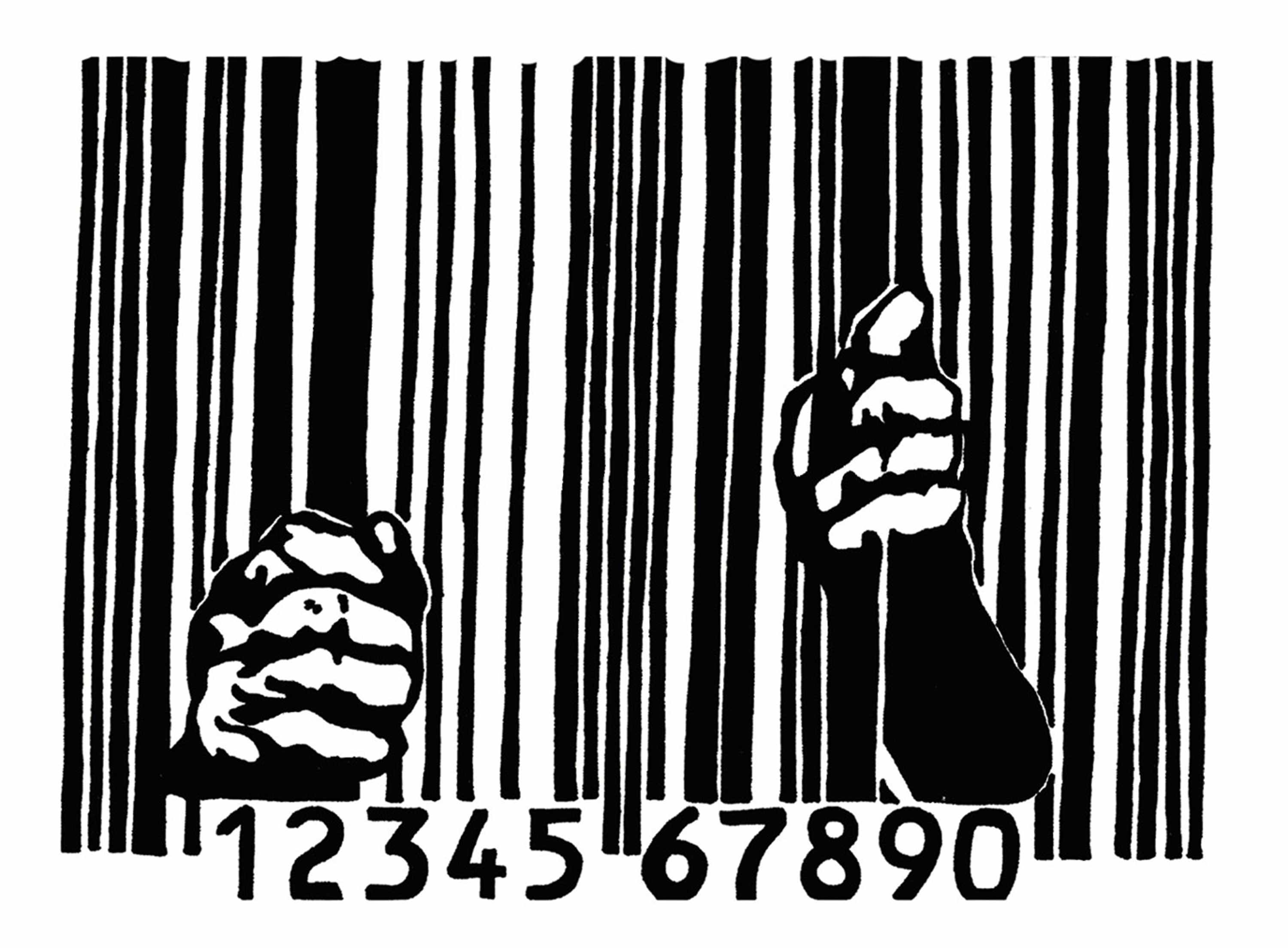
It is clear that we live in an era when there is a global concentration of economic power in the hands of persons with materialistic values and that this poses a hazard to the health of our planet and ourselves. This needn’t always be the case and by valuing creativity, collaboration and truth over power and wealth we can move to a happier and healthier society.
7. Enjoyable pursuits
We act as though comfort and luxury were the chief requirements in life, when all we need to make us really happy is something to be enthusiastic about. - Charles Kingsley
Materialist values leads to extrinsic motivation ; doing things in expectation of external rewards (e.g. money or status). More generally, this is the belief that things outside of ourselves will make us happy. This motivation compels us to engage in pursuits that do not fulfil psychological needs. For example we may be prone to work long hours to save for new possessions. As we adapt to our new possession they don’t make us happy and we become convinced we need a new one.
Surfs Up Dude!

In contrast to this, turning away from striving after wealth and possessions frees us to pursue work for more profound reasons or to have more time and space for creativity, hobbies and interesting and enjoyable activities. The intentional activities in life we choose include: work, sports, hobbies, community activities and interpersonal relationships. Making time for these pursuits rather than chasing rewards or attempting to avoid failure is a recipe for happiness.
Green people are more likely to be intrinsically motivated. This instils the desire to do things ‘just for the fun of it’. People consistently enjoy activities and do better in them when they are doing it purely for the joy of the activity as opposed to for a reward. By refocusing our lives so that we give ourselves more time for fun pursuits we can boost our wellbeing and reduce our consumption... double whammy!
8. Personal development
Joy is a flower that blooms when you do. - Anon
In 1943 Abraham Maslow proposed his highly influential theory of a Hierarchy of Needs. He went on to develop this over the course of his life. He contends that as humans meet 'basic needs', they seek to satisfy successively 'higher needs' that occupy a hierarchy. To have high quality life, people must have their needs satisfied.
The lowest levels are occupied by physiological needs and are termed ‘deficiency needs’. As these are met, higher levels of needs emerge, and the person moves up the pyramid. The higher levels are termed ‘growth needs’ and are associated with psychological needs. While our ‘deficiency needs’ must be met, our growth needs are continually shaping our behaviour. Personal growth creates upward movement through the hierarchy.
Maslow studied exemplary people such as: Albert Einstein, Jane Addams, Eleanor Roosevelt, and Frederick Douglass who one might expect to have reached the pyramid’s apex. Maslow writes the following of self-actualizing people:
- They embrace the facts and realities of the world (including themselves) rather than denying or avoiding them.
- They are spontaneous in their ideas and actions.
- They are creative.
- They are interested in solving problems; this often includes the problems of others. Solving these problems is often a key focus in their lives.
- They feel closeness to other people, and generally appreciate life.
- They have a system of morality that is fully internalized and independent of external authority.
- They judge others without prejudice, in a way that can be termed objective.
From these general descriptions we might infer that people who are engaged and active around environment issues are more likely to have reached the top of the pyramid. They have developed in such away as their lower level needs have been met and they are now turning their attention and creative energies to the overwhelming challenge that a collapsing biosphere presents for our species.
These people are intrinsically motivated. As explored in the previous section it is clear that intrinsic motivation avoids pathological, over-consumptive behaviour because it orientates people towards meaningful pursuits, often for the good of others. We see that personal development positively impacts upon the well- being of the individual, the well-being of others and the quest for sustainability. In contrast the aim of an ever-expanding economy based on increasing consumption requires that people do not move up the hierarchy of needs, so that they remain obsessed with lower level needs such as safety and status. We see again how the thrust of advanced capitalist society are diametrically opposed to the well-being of people and planet.
9. Social actualization
If you want others to be happy, practice compassion. If you want to be happy, practice compassion. - Dalai Lama
Well-being is of critical importance to society. Happy people are more: sociable, generous, creative, active, tolerant, healthy, altruistic, economically productive and long living. Therefore it follows that a healthy, successful society is a happy one. Working towards improving individual well-being is not just an end in itself. There are manifold benefits to society in totality. Should we aspire for social progress then a first port of call should be improving individual well-being since this leads to citizens more capable and empowered to rise to environmental problems.
Today’s advanced capitalist societies are low-synergy (declining wellbeing) and unsustainable (declining environmental quality). British psychologist Oliver James asserts that there is a correlation between the increasing nature of affluenza and the resulting increase in material inequality: the more unequal a society, the greater the unhappiness of its citizens. For a long time environmental problems where considered separate and distinct from social ones but it has become clear that social and environmental problems are intractably bound. This is why climate change has been described as an opportunity. The threat of the annihilation of our civilization is real. To survive we must change everything from the values that underlie our societies up.

Crisis can be opportunity. The environmental crisis presents humanity with a significant novel challenge. It can be overcome, but only through global cooperation and a profound change of values. Global sustainability will require all of humanity’s basic needs to be met and a social design that eases a critical mass up Maslow’s hierarchy of needs. The transition from advanced capitalist state to ecological society will be founded upon the increasing psychological dynamism of the population. A society that provides more room for personal and social actualization will allow for more meaningful endeavours to be entered into. This opens the door to a new kind of society in which we can raise our collective aspirations as explored in The Venus Project.
The shift to sustainable societies could be a social phase transition that can only be accomplished through global cooperation and a new shared set of values that place planetary concerns before those of nations or individuals. In the quest to make sustainable societies we may unwittingly enter a new era of peace on Earth and harmony with the natural world in which a majority of humanity is able to self-actualize. Society underwent stratification after the invention of agriculture. Fewer people were required to collect food allowing the growth of craft, trade and eventually science. The move to the ecological age may involve a new stratification with more people (self) actualizing. Freed from the constant need to compete in a capitalist marketplace new horizons, yet to be imagined, can be approached.
10. Transcendence
A human being is part of the whole called by us universe ... We experience ourselves, our thoughts and feelings as something separate from the rest. A kind of optical delusion of consciousness. This delusion is a kind of prison for us, restricting us to our personal desires and to affection for a few persons nearest to us. Our task must be to free ourselves from the prison by widening our circle of compassion to embrace all living creatures and the whole of nature in its beauty. The true value of a human being is determined by the measure and the sense in which they have obtained liberation from the self. We shall require a substantially new manner of thinking if humanity is to survive. Albert Einstein
Transpersonal psychology evolved as a result a growing realization that humanistic psychology failed to give, as Anthony Sutich puts it: “…sufficient attention to the place of man in the universe or cosmos”. Transpersonal psychology shares with Eastern spiritual traditions the belief that the sense of self can expand to identify with all humanity and other aspects of the world beyond the body. In doing so it transcends conditions of separateness and isolation that are the source of so much human misery and angst. There is an implicit recognition of the inherent unity of all existence and subsequent feelings of belonging, oneness and peace.
Later in his life Maslow adapted his hierarchy of needs and added a 6th layer which was defined as those who have transcended self-actualization. These people find it ‘easy to transcend the ego, the self, the identity’, they live in the ‘kingdom of ends’ and they see people and other entities in the world as ends in themselves rather than in terms of their utilitarian value. This intrinsic value approach has been applied to ecology and is termed either deep ecology or transpersonal ecology.
Deep ecologists apportion value to other living things because of their life: their ability to self-organise and self-sustain. Thus, rather than arguing for the sustenance of all complex forms for their utilitarian value, those with an ecological worldview see other life forms as intrinsically valuable in themselves. [Arne Naess] who coined the phrase 'deep ecology' in 1972 said “life is fundamentally one. ... The deep ecology movement is the ecology movement which questions deeper. ..The adjective 'deep' stresses that we ask why and how, where others do not.”
/wp-content/uploads/2011/05/transcendence.gif Transcendence
There are myriad benefits to this transcendent sense of self both for the individual and the environment. The individual may experience a sense of belonging and a compassion for the rest of existence as reported by Western deep ecologists and Eastern mystics alike. This compassion extends to all living things. Naess again, “care flows naturally if the “self” is widened and deepened so that the protection of free nature is felt as the protection of ourselves”.
The Cartesian supposition that humans are separate entities in a mechanistic universe is the source of much modern alienation and misery. The void between our ‘selves’ and the rest of the universe is from where existential angst wells up. It is here that we strive for meaning. As dissipative structures sustained by an influx of matter and energy that starts at the sun and is channelled, through plants, up food chains to us, any separation in time or space between us and the natural world is a projection of the ego mind, not a scientific observation. This separation may be necessary for basic functioning but it is limiting to higher conscious developments.
An ecological interpretation focuses on connections, not separations. Meaning comes from the understanding that we are a strand in the web of life, a part of the grand unfolding of the cosmos. As Harold Morowitz puts it, “life is a property of planets rather then of individual organisms”. Personal wellbeing and environmental care are increased by recognizing humanities place as an integral part of the natural world and indeed the evolving cosmos. Historically significant interpretations of transpersonal entities include, Aurobindo's Overmind, Emerson's Oversoul, Plato's Forms, Plotinus' nous , and the Hindu Atman, or world-soul.
..\wp-content\uploads\2011\05\sri-lanka-2-144.jpg Ken Wilber’s Integral Theory binds everything together. He explained how every entity and concept (including us) is a holon; something that is simultaneously a whole and a part. For example, a cell in an organism is a whole and at the same time a part of another whole, the organism. Everything from quarks to matter to energy to ideas can be looked at in this way. Applied to developmental psychology we see that an egocentric perspective is a level (or stage) below an ethnocentric perspective which is below world centric and being centric. Thus Wilber shows that ethnocentric and world centric are not in competition it is just that one is an earlier stage to another. All babies are born totally egocentric but move up through the stages as they develop. Likewise cultures progress through stages of ethical development. Of course, many people’s development gets stuck at a low level for a variety of reasons; some due to social problems discussed above. For society to become sustainable a critical mass of people must develop their world views to higher levels.
/wp-content/uploads/2011/05/stages.jpg Ken Wilber's Developmental Stages
Current breakthroughs in physics, the teachings of the world’s great mystics, and environmentalism lead us to the same conclusions. That we are far more then we were taught at school or as is reinforced by our western, individualistic culture. By looking up from the mad whirl of human activity around us we can get switched on to our unprecedented place in the cosmos. The spark of consciousness in our minds is a part of something far greater then we might have fathomed. We are not compelled to compete in lives that are nasty, brutish, and short. We are an integral part of the evolving universe and the future is ours to co create. By realizing this we can shift from a desire to own and control to a desire to love and nourish.
By fundamentally changing our cultural values we can create societies that collaborate for increased well being rather than compete for increased wealth and in doing so create advanced new societies that are green and happy and in which our achievements are only limited by our imaginations.
So what...
It is said that for anything to happen there must be the will and the way. The sustainable way has existed for some time now and is well documented (e.g. Irvine & Ponton 1988, Porritt 1984, Hawkens et al 1999). The green movement has been extremely prolific in generating the ‘DNA’ of a sustainable society but has lagged in successfully proposing how to bring its genesis about. The way exists but not the will. How can a critical mass within society be motivated to actively strive for a sustainable ecological society when it is viewed with such suspicion?
Herman Daly writes that it is “unrealistic to believe that we will choose simplicity and frugality except under ecological duress”. It is an issue to debate whether global warming represents a level of ecological duress capable of catalysing change. However, duress might not be required if a more simple life came about alongside a more local, communal, less stressful - in short happier – life, in other words, if a convincing case for an ecological society could be made in which it was shown that there would be actual gains in well-being.


